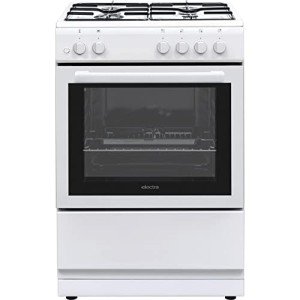A Comprehensive Guide to Buying Gas Cooking Appliances
When it concerns cooking, the choice of equipment can significantly influence the general experience and leads to the kitchen. Among the most popular options for cooking is the gas stove. Gas cooking home appliances are renowned for their efficiency, precision, and ability to handle high-temperature cooking, making them a top option amongst home cooks and expert chefs alike. This post will provide an in-depth take a look at various elements to consider when acquiring a gas cooking appliance, kinds of gas cooking appliances available, and answers to frequently asked questions.
Why Choose Gas Cooking Appliances?
Gas cooking home appliances offer numerous advantages over electric models. A few of the crucial benefits include:
- Instant Heat Control: Gas ranges enable for immediate temperature level changes, providing much better control over the cooking procedure.
- Even Cooking: Gas flames offer consistent heating, minimizing the opportunities of hot areas or burnt food.
- Versatility: Many gas home appliances can be utilized for a vast array of cooking techniques, including simmering, boiling, and high-temperature searing.
- Energy Efficiency: Gas devices typically use less energy compared to their electrical equivalents, leading to lower energy expenses.
Types of Gas Cooking Appliances
When thinking about a gas cooking appliance, there are numerous types to pick from. Each has its special features matched to various cooking requirements:
| Type | Description | Key Features |
|---|---|---|
| Gas Ranges | A mix of gas oven and stovetop. | Versatile cooking methods; multiple burners. |
| Cooktops | Standalone gas burners created for counter installation. | Streamlined style; ideal for customized kitchen layouts. |
| Wall Ovens | Built-in gas ovens installed in the wall. | Space-saving style; convenient accessibility. |
| Outdoor Grills | Gas sustained grills developed for outside cooking. | Perfect for barbecues; high heat retention. |
| Gas Fryers | Equipment developed for frying food utilizing gas. | Quick heating; perfect for expert settings. |
What to Consider Before Buying
Before buying, a number of factors should be taken into account:
1. Size and Space
- Measurement: Measure your kitchen space to ensure the appliance fits well. Consider the dimensions of both the cooking surface and oven if suitable.
- Configuration: Decide if a range or a different cooktop/oven configuration is more fit to your kitchen design.
2. BTU Rating
- BTU (British Thermal Unit) determines the power output of burner. Greater BTU rankings typically indicate stronger heat output, which is perfect for high-temperature cooking.
- Examine the BTU rating for each burner to determine if it meets your cooking requirements.
3. Product Quality
- Search for resilient materials such as stainless steel or durable cast iron. These products offer much better heat retention and are easier to clean.
4. Installing Options
- Gas home appliances can be free-standing, slide-in, or built-in. Consider what fits best in your kitchen style and what your choices are.
5. Features and Technology
- Ignition: Choose between electronic ignition and standing pilot light systems.
- Safety Features: Look for devices with safety shut-off and flame failure gadgets.
- Cleaning Options: Some models come with self-cleaning features or detachable grates for easier maintenance.
6. Budget
- Set a budget considering not simply the purchase price but also possible setup expenses and future maintenance.
7. Brand Name Reputation and Warranty
- Research reliable brands with excellent customer reviews. Also, consider the warranty used and the accessibility of consumer support.
Top Brands to Consider
When choosing a gas cooking appliance, certain brands stand apart due to their credibility for quality and performance.
- Bosch: Known for smooth style and ingenious technology.
- KitchenAid: Offers a range of models with easy to use features.
- Whirlpool: A reputable choice with a series of gas cooking appliances.
- Viking: Specializes in high-end, professional-grade home appliances.
- GE Appliances: Provides a broad selection at different cost points.
Frequently Asked Questions About Buying Gas Cooking Appliances
What are the benefits of using gas over electrical cooking devices?
Gas appliances provide immediate heat and precise temperature control, permitting a more flexible cooking experience. They are often thought about more effective than electrical stoves.
Is it tough to install a gas cooking appliance?
While gas stoves can be installed by knowledgeable DIYers, it is highly recommended to hire a licensed expert to guarantee safe setup according to regional codes and guidelines.
How do I maintain my gas cooking appliance?
Regular cleaning is important. Clean the burners, grates, and oven frequently. Examine gas connections for leaks and ensure correct ventilation in your kitchen.
Can I transform my electrical stove to a gas stove?
For the most part, it is possible to convert electric ranges to gas, however this process might include including gas lines and making sure correct ventilation. Speak with a professional before trying a conversion.
Are gas devices safe?
Gas appliances are generally safe when utilized and preserved correctly. Always guarantee Ovens And Hobs have actually smoke alarm set up and examine for gas leaks regularly.
Purchasing a gas cooking appliance can significantly improve your cooking experience with its effective and controllable cooking abilities. Before purchasing, it is crucial to consider numerous elements such as size, BTU rating, material quality, and budget. By understanding the offered options and thoroughly evaluating your needs, you'll be well-equipped to choose the best gas appliance for your kitchen. With the best choice, cooking can be not just enjoyable but also a fulfilling activity that brings delight to your home.

